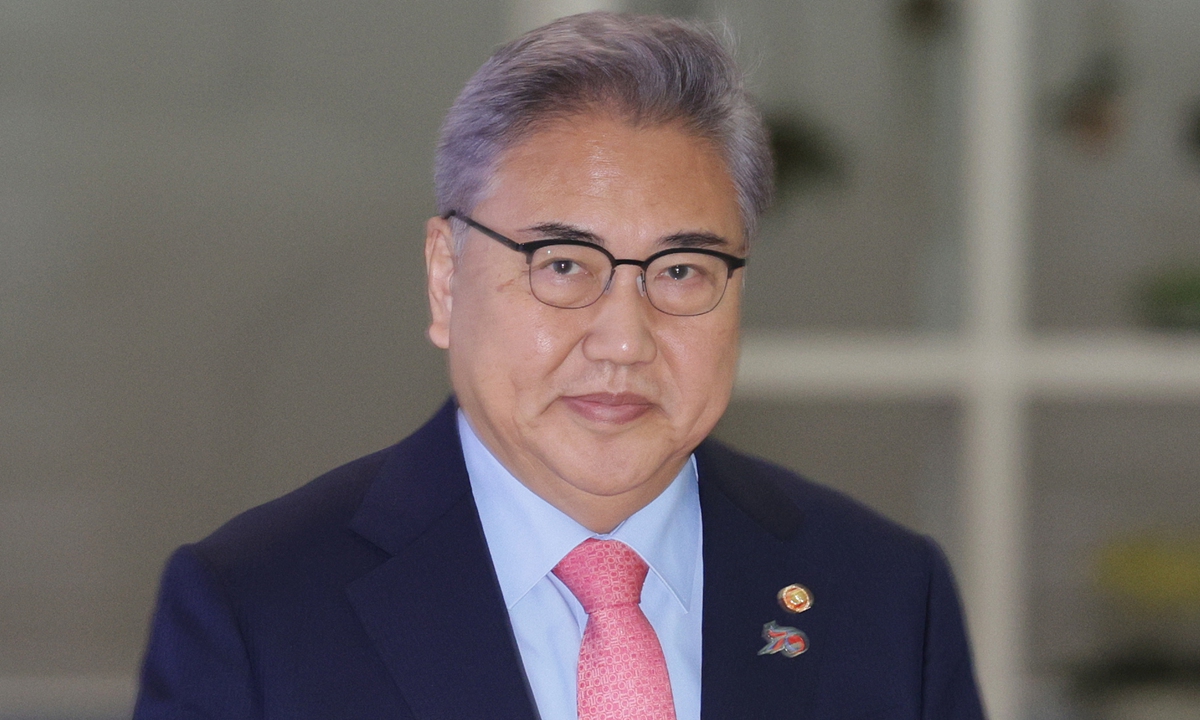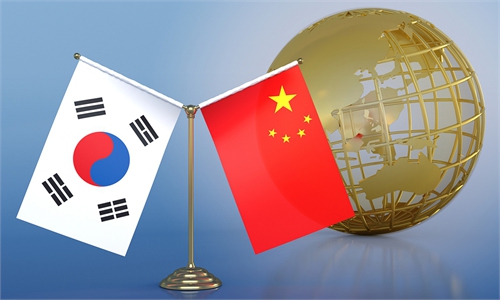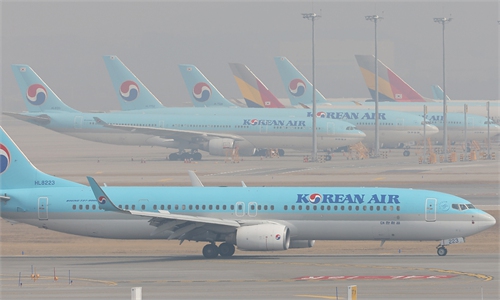S.Korean FM's remarks show little sincerity in repairing China ties; reckless pro-US policies undermine Seoul's own interests: analysts

South Korean Foreign Minister Park Jin Photo: VCG
South Korean Foreign Minister Park Jin's latest remarks claiming that the government of President Yoon Suk-yeol "sees no need" to sour ties with China, while at the same time reiterating criticism of Chinese envoy Xing Haiming over so-called inappropriate behavior, laid bare the Yoon government's lack of sincerity in easing tensions and its reckless pro-US turn is a betrayal of traditionally balanced diplomacy, harming its national interests and status in the international community, Chinese analysts pointed out on Monday.
In an interview Sunday with Yonhap News TV, Park said that the Yoon government sees "no need" to sour ties with China, while stressing that Seoul will continue to step up communication with Beijing to boost their friendly ties.
"The basic stance of the Yoon Suk-yeol government is to advance South Korea-China relations to that of a mature and healthy one based on mutual respect, reciprocity and common interest," he said.
However, during the interview, the South Korean top diplomat continued to hype Chinese Ambassador Xing Haiming's recent remarks over Seoul's foreign policy and reiterated his criticism of Xing, saying it was inappropriate behavior as a "diplomat."
China has noted Park's remarks, and China's basic position of attaching importance to and developing relations with South Korea has not changed. We hope that South Korea will work with China to push bilateral relations back to the track of healthy development, Chinese Foreign Ministry spokesperson Mao Ning told a routine press conference on Monday.
The healthy and stable development of China-South Korea relations conforms to the common interests of both sides. Bilateral relations are currently facing some difficulties, and the crux is clear, Mao said.
We welcome the part [in the remarks] where Park urged challenges in current bilateral ties to be overcome, but we cannot accept the South Korean diplomat's groundless criticism of Ambassador Xing's normal and legitimate diplomatic activity… Park's remarks showed only a lack of sincerity of the Yoon government in easing tensions and repairing ties, Lü Chao, an expert on Korean Peninsula issues at the Liaoning Academy of Social Sciences, told the Global Times on Monday.
On June 8, Ambassador Xing met the leader of the main opposition Democratic Party of Korea, Lee Jae-myung, at the embassy to discuss China-South Korea relations and the Korean Peninsula issue, and remarked that China wants South Korea to be free from outside factors in handling its relations with China.
In a situation in which the US is pressuring China with all its might, some are betting that the US will win and China will lose. This is clearly a wrong judgment and a failure to properly grasp the course of history, Xing was reported to have said.
The remarks, which showed nothing but China's high regard for South Korea and China-South Korea relations, were picked up by South Korea's conservative forces. Kim Gi-hyeon, leader of the ruling People Power Party (PPP) said Xing's remarks were "clear interference in domestic affairs and a serious diplomatic discourtesy" during a party meeting on June 9, according to the Yonhap News Agency.
Mao reiterated on Monday that it is the duty of diplomats to have extensive contacts and exchanges with all walks of life in the country where they are stationed, and such normal exchanges should not become a topic of hype.
According to Chinese analysts, China-South Korea bilateral ties took a significant hit in 2017 when South Korea started the process of deploying the US Terminal High Altitude Area Defense (THAAD) anti-missile defense system, and the incumbent President Yoon Suk-yeol's pro-US shift in foreign policy has added to the difficulty in reversing the downturn in ties.
South Korea completed on June 21 an environmental impact assessment of the US THAAD system, which is temporarily deployed at the US military base in Seongju, nearly 215 km southeast of Seoul.
According to a press release by South Korea's Ministry of National Defense (MND) on June 21, the Ministry of Environment and the MND approved the full deployment of THAAD at the Seongju base.
Lü said that this development showed that the Yoon government has chosen to blindly curry favor with the US at the cost of relations with China. Furthermore, Yoon's inappropriate remarks treading on the red line over the Taiwan question in April also proved the current South Korea leader was making a reckless pro-US turn.
South Korean airlines, including the country's flagship carrier Korean Air, have reportedly announced that they will suspend flight routes to destinations in China due to a lack of passenger demand and the low load factor of the routes. According to a Reuters report on South Korean exports, the country's shipments to China, its largest trading partner, slid 20.8 percent in May, marking the 12th straight annual drop.
Lü said Yoon's government is betraying the traditionally balanced foreign policy in which South Korea has been able to maintain neutrality between the US and neighboring China, Russia, while also handling ties with Japan and the feelings of its own people with dignity. "Blindly following the US has and will continue to hurt trade, political and cultural ties between China and South Korea, which is not in line with the interests of South Korean people."
"It will also undermine the status of South Korea in the international community and make it difficult for South Korea to play its due role in regional affairs," he added.




